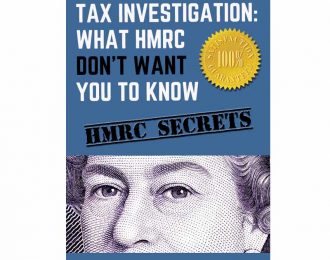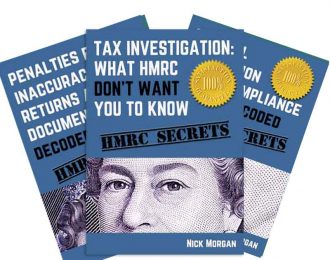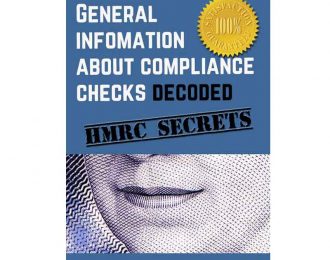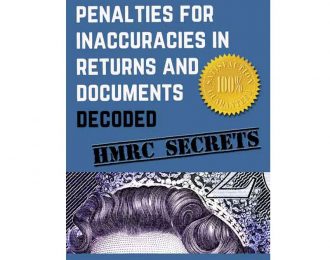Should I Complain?
Here are the people you can complain to and the likely results.

Complain to the person who is investigating you
The HMRC factsheet Complaints says, “If you are unhappy with our service, please let us know as soon as possible. We can usually put things right quickly if you phone the person or office you have been dealing with.”
Complaining to the person or office you have been dealing with is often futile, but is a necessary first step.
HMRC already know they are being unreasonable; it’s their job to get as much money out of you as possible. Obviously you are going to be unhappy and want to complain.
Remember this: phone calls will result in notes being made, and what’s written down in your file by HMRC will be slanted in their favour. It’s always best to write.
Complain to the boss of the person who is investigating you
This person might be called the ‘complaints handler’ or ‘services advisor’.
This too is likely to be futile. There is a possibility that HMRC will apologise but they will then just continue with the investigation as if you’d never complained.
At this point HMRC will say, “This ends our complaints process. You have now received our final response.” Over 50% of complaints don’t go past this point. And you can see why when HMRC are sending out this information.
But actually – for you – this is just the start.
Apply for Alternative Dispute Resolution
Alternative Dispute Resolution (ADR) is – in the words of HMRC a service, “that aims to help resolve disputes or get agreement on which issues need to be taken for a legal ruling.”
At any point in the investigation you can ask for ADR – you don’t have to wait for the investigation to end or for HMRC to invite you to complain.
HMRC say, “ADR gives you the option of having someone who’s not been involved in your dispute, to work with you and the HMRC officer dealing with it. The person leading the ADR will act as a neutral, third party mediator. They don’t take over responsibility for the dispute. They’ll work with you both to explore ways of resolving the dispute through meetings and telephone conversations. They’ll help you focus on the areas that need to be resolved and, if needed, help re-establish communications between both parties.”
ADR is well worth going for, particularly if an overzealous investigator is bullying you.
More about ADR and to apply: www.gov.uk/guidance/tax-disputes-alternative-dispute-resolution-adr
Go to a Tribunal
You are also entitled to present your case at a Tribunal.
Often just the threat of a Tribunal will be enough to make an investigator stop in their tracks and reconsider – particularly if they are bending the rules.
Most of the literature handed out by HMRC suggests that you have to wait for the case to conclude before you appeal, then you have to appeal the whole thing. This is not true on either count.
You can appeal on any aspect of the case and the Tribunal will judge it on a point of law at any time.
So let’s say HMRC are asking for personal records right at the start of the investigation – and they are being quite persistent. You can just say, “You have no right to ask for these records and if you persist I’ll take this to a Tribunal.” And that should stop them in their tracks.
More about Tax Tribunals and how to apply: www.gov.uk/tax-tribunal/overview
Other action
You can take your case to the Adjudicator and then to the Ombudsman. The Adjudicator has a one-year waiting list and the Ombudsman will only look at your case once the Adjudicator has finished with it. You will also need a letter from your MP, so it’s a long journey.
Your best bet for complaining while your case is running are ADR and the Tribunal.
The Adjudicator’s website with how to apply on the front page:
Complain to the ombudsman:








